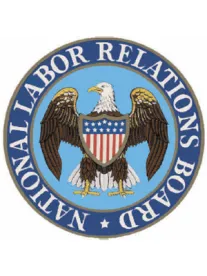Of all the changes to the law the NLRB has made in the last several years, the most significant involve how the agency determines bargaining units. For example, the NLRB’s decision in Specialty Healthcare drastically altered the manner in which bargaining units were determined by the Regional Directors and the NLRB. Also, the NLRB’s ambush election rules also fundamentally changed the ability to challenge a petitioned for bargaining unit by granting Regional Directors immense discretion to decide whether litigation over a proposed bargaining unit could even proceed.
It is somewhat surprising, then, that the NLRB recently decided that prior unit determinations, even those that are several years old and pre-date Specialty Healthcare, could have a “preclusive effect” (known as res judicata) on a new petition: that is, a prior Regional Director or NLRB ruling on a bargaining unit presumptively stops a party from attempting to re-litigate the previous issue unless it can rebut the presumption by showing that circumstances have changed. It is even more surprising that the Board majority was made up of Acting Chairman Miscimarra (who usually is in the dissent) and Member McFerran. Board Member Pearce dissented.
Case Involved 17 year Old Regional Director Decision
In Wolf Creek Nuclear Operating Corporation, 365 NLRB No. 55 (April 7, 2017), the petitioning union sought through a representation petition to hold an election and represent some buyers at a nuclear power plant. The employer asserted the buyers were “managerial employees” outside of the NLRA’s jurisdiction. The employer contended that the status of the buyers had been decided during a previous representation proceeding held in 2000. In the 2000 case, the union had filed a unit clarification petition seeking to place the buyers in an existing collective bargaining unit. The Region in that case ruled the buyers were managerial employees and did not add them to the existing unit.
In the present case, the Regional Director reviewed the 2000 decision and concluded that it was not binding because “the Board did not issue an official ruling on the issue of whether Buyers are Managerial employees. . .”
The employer appealed.
On appeal, a Board majority granted the appeal and remanded the case to the Regional Director. In doing so the Board concluded the 2000 Regional Director’s decision was a “final order” which precluded relitigation of the status of buyers because neither party appealed it to the Board; the lack of appeal rendered the decision a final order. The Board came to this conclusion because the rules in effect 17 years ago precluded “parties from relitigating in any related subsequent unfair labor practice proceeding, any issue which was, or could have been raised in the representation proceeding.” The Board stated that it saw “no reason why a regional director’s decision that could have preclusive effect in a related subsequent unfair labor practice proceeding would not also be potentially preclusive in a subsequent representation proceeding involving the same parties and the same issue, although the Board’s Rules and Regulations do not expressly contemplate that scenario.” (emphasis in original).
The Board held that the prior decision may have preclusive effect unless the party seeking to relitigation of the previously decided issue “satisfies its burden of presenting new factual circumstances that would vitiate the preclusive effect of the earlier ruling.”
The Board remanded the case to the Region to “fully consider whether changed circumstances warranted declining to give the 2000 decision preclusive effect.”
Dissent Takes Issue
Member Pearce disagreed with the majority, claiming that the Board’s decision impermissibly required the union to prove that circumstances had changed:
The employer has raised res judicata as an affirmative defense to the petition, relying on a unit clarification determination that is almost 17 years old. As the party raising res judicata as an affirmative defense, the Employer bears the burden of proving that is defense is justified.
Impact of Decision
The Board’s decision will be significant for those parties, union or employer, who have previously litigated and won a particular issue in a representation case. No matter how long ago the prior litigation occurred, the party wishing to enforce it can assert that the issue cannot be relitigated. Once the prior decision has been raised, the burden will shift to the opposing party to demonstrate that circumstances have changed since the prior ruling warranting a fresh look at the issue. It is a significant decision because it seems to not take into account the fact the Specialty Healthcare decision fundamentally changed how bargaining units are determined, in effect preserving these prior decisions as precedent. Given the fact that the decisions that the Board and Regional Directors have issued since Specialty Healthcare have disregarded prior Board precedent, this decision is a notable exception.
There are two vacancies on the Board the new President has yet to fill. It is entirely possible Specialty Healthcare, and a host of other decisions representing changes to longstanding Board law, will be reversed in the coming years.



 />i
/>i
